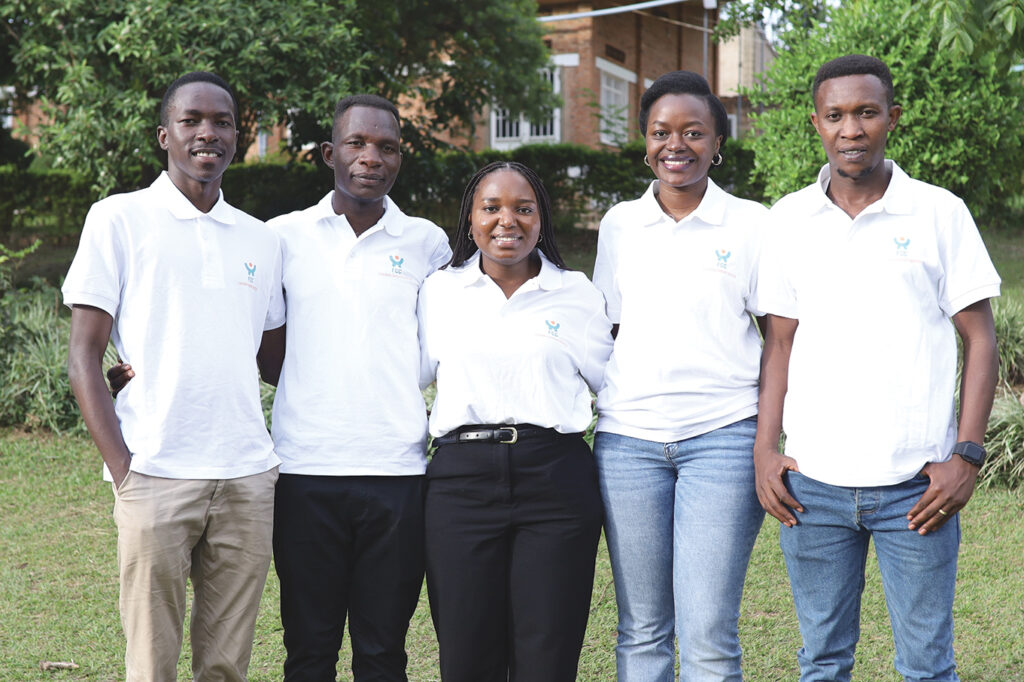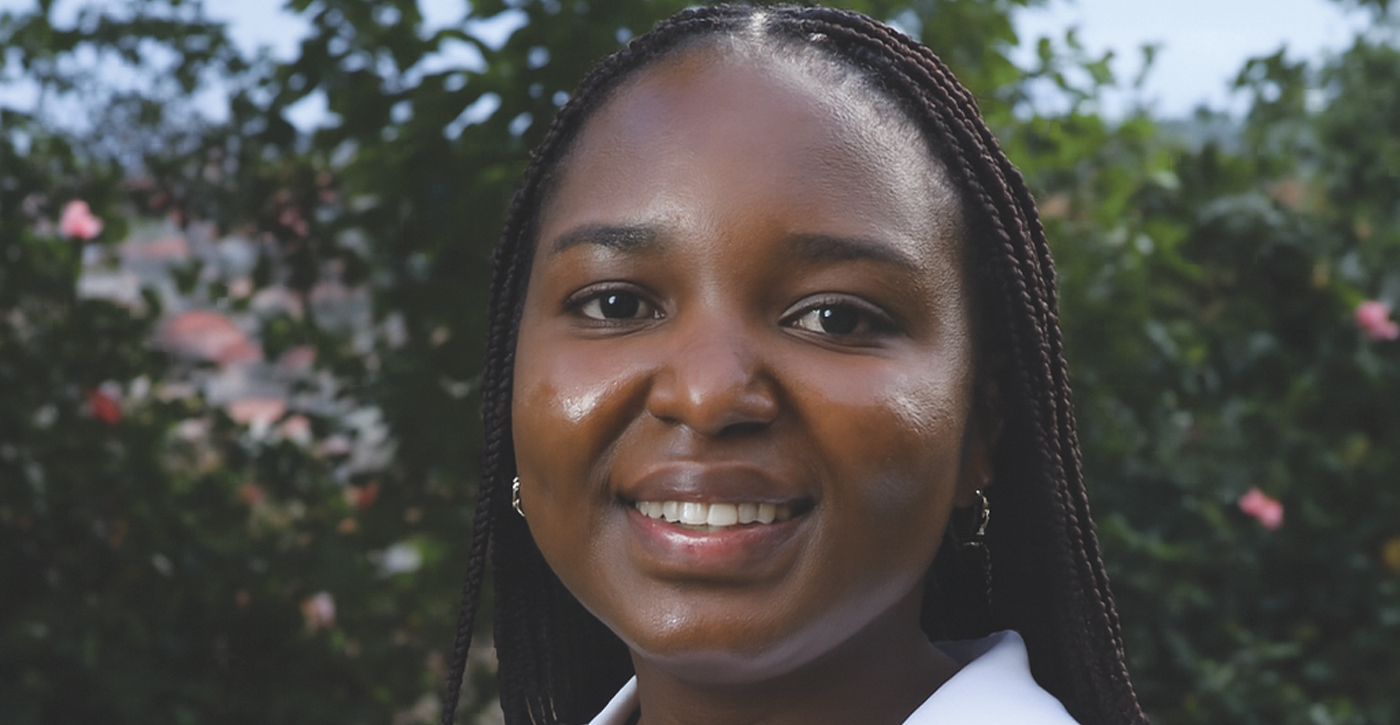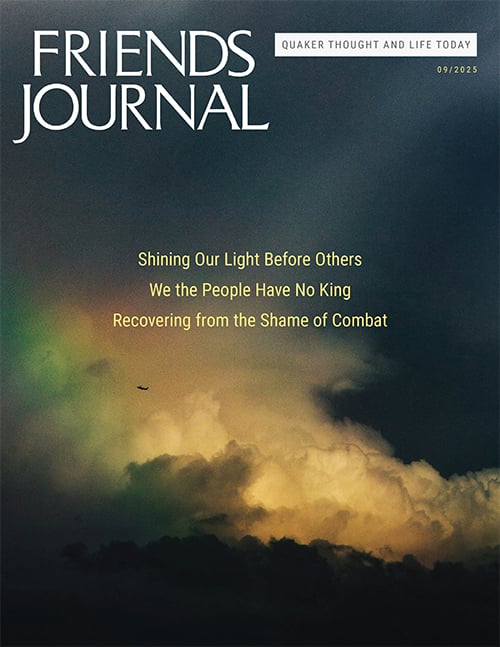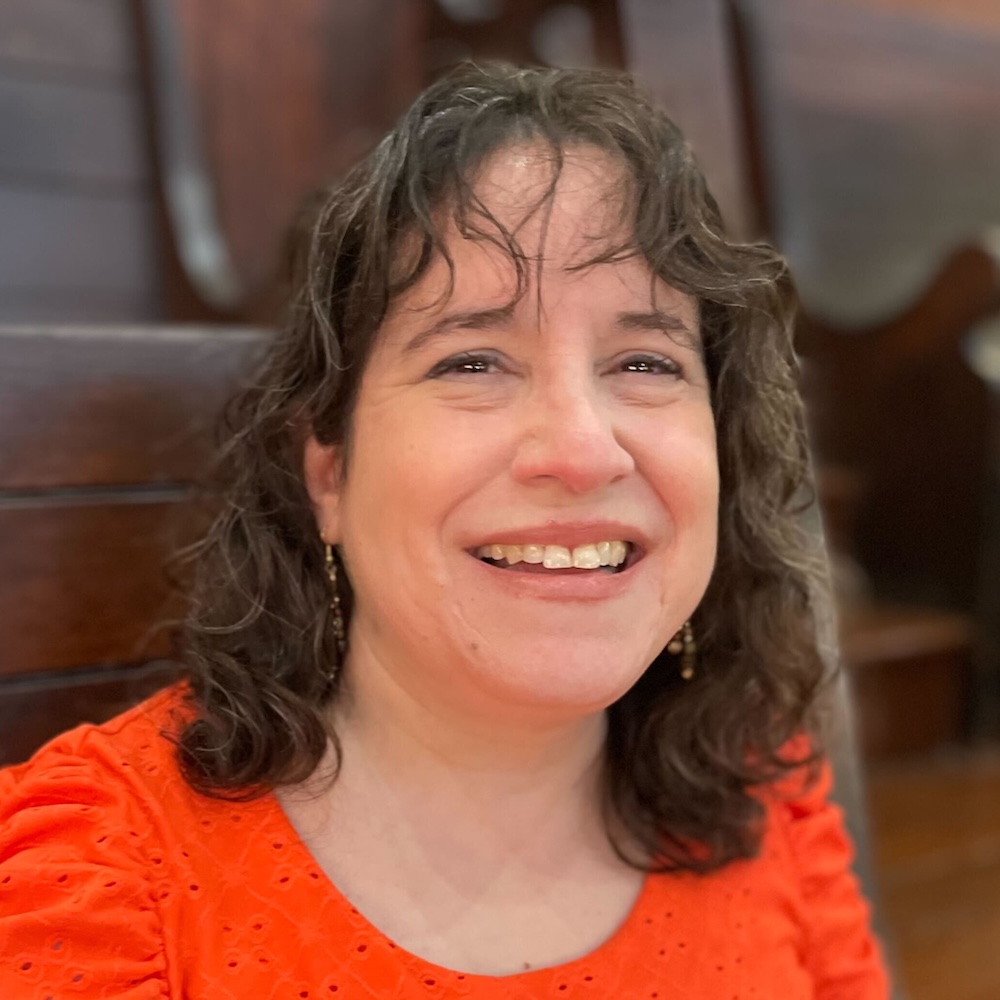An Interview with Joyeuse Senga of Friends Career Center
The volunteer-run nonprofit Friends Career Center (FCC) offers career development guidance to young people in Rwanda and to the East African diaspora in Canada. The organization is based on Quaker convictions but serves people regardless of their religious beliefs. It also provides art-based emotional healing programs for individuals living with HIV/AIDS. FCC partners with other Friends organizations such as Mwananshuti Vocational Training Center, an initiative of Friends Peace House in Rwanda. Other partner organizations include Quaker Earthcare Witness and Quakers in Britain. Friends Journal staff writer Sharlee DiMenichi interviewed FCC founder and executive director Joyeuse Senga. Senga is a member of Rwanda Yearly Meeting. She attends Toronto Meeting in Ontario, Canada. The interview has been lightly edited.
Sharlee DiMenichi: Please give an overview of how Friends Career Center got started and explain your role in launching it.
Joyeuse Senga: Friends Career Center was started in 2020, shortly after I completed my undergraduate studies at Samford University in Birmingham, Ala. My cofounder, Sandrine Ishimwe, and I recognized a critical gap among the young people we knew in the Quaker community. While there were commendable efforts around peacebuilding and trauma healing, there was little available to support young people in building sustainable livelihoods, especially regarding professional development and career guidance.
For us, it looked like the spiritual was separate from the professional calling. Additionally, we saw significant inequities around access to opportunities such as information about jobs, scholarships, and career growth in general. We believe that career development, spiritual and faith practice, and mental health are key to long-term peace and community empowerment. The majority of our monthly meetings in Rwanda are 80 to 90 percent young people. When we started, our goal was simply to bring together young people in our community. We started with workshops of around 20 to 30 people, and Kicukiro Friends Church in Kigali would allow us to use their space.
We are now a fully functioning organization operating in Canada and Rwanda. In 2021, two of the FCC founding members moved to Canada, and we noticed the same gaps in East African refugee and immigrant communities there, especially that young people from our own backgrounds were not seen in the professional spaces in Canada.
While we were founded under Quaker principles, we serve all youth in need regardless of background. As executive director, I oversee our strategy, partnerships, and fundraising. I also use my expertise in public health research, co-design, and community engagement to oversee our project implementation and ensure that our programs are centering youth voices.

SD: What specific tasks were involved in FCC organizing the climate change workshop at the College of George Fox Kagarama (a Quaker secondary school in Rwanda)?
JS: This is a new initiative called EcoFriends that we launched in 2025 in partnership with Quaker Earthcare Witness through their mini-grants program. Led by our community engagement lead, Jean D’Amour Tuyizere, it is an interactive project designed to raise awareness in Quaker high schools about climate change and related career paths. The focus is on professional development and equipping the next generation of climate activists, scientists, or people interested in this field with different skills.
For the workshop at the College of George Fox Kagarama, Jean D’Amour coordinated our partnership with the school and local meetings. We invited facilitators and speakers, including local experts and youth leaders, and we provided all necessary materials, refreshments, and post-event resources. Participants were students chosen for their interest in climate action and community service. After the workshop, students planted trees around their school as a symbol of their commitment. They also formed a club to continue this work.
SD: What are some of the goals of that club?
JS: The environmental club was created to extend the workshop’s impact. Our goal at FCC is sustainability of our projects and also transferring ownership for young people to co-lead and co-design these programs. The club is a good way to foster that continuation. We have already conducted two meetings with the club members. The goal of the clubs is to keep students engaged in their schools and to foster climate literacy. We will provide mentoring for students interested in green careers, co-creating community-based climate solutions, and building a sustained network of young changemakers.
SD: How would you describe the process of obtaining funding for the EmpowerHer program?
JS: Just like most programs, securing funding is not easy. As a small organization that is volunteer led, we are still learning. We secured the first grant for the EmpowerHer program through the support of Quakers in Britain (Simmons Grant); other funding was secured when we won the McGill Dobson Entrepreneurship Competition. The processes for both were competitive. I believe what set our application apart was the long-standing commitment to co-designed programs where youth are at the center. We are young people ourselves. When I speak about FCC, it comes from a place of passion and from my individual commitment to give back to my community, country, continent, and the world. We love to tell stories. While numbers matter, our impact focuses on the individual, not just their success but who they are as a person. I think there is power to that. With EmpowerHer, we want to support young mothers and young women.
SD: What are some of the accomplishments of women who have graduated from the EmpowerHer program?
JS: EmpowerHer graduates are becoming economic drivers and role models in their communities. Some have launched small businesses such as fruit stalls, mobile airtime kiosks, and culinary ventures while others have secured stable employment. These women have not only become financially independent but have also built confidence, taken on leadership roles, and are mentoring others. One of our graduates spoke at her graduation ceremony.
These achievements have a ripple effect. Graduates are employing others, reinvesting in their local economies, and uplifting families. Many are able to support themselves and their siblings. Some are mothers now able to provide for their children.
SD: What barriers to employment do young women in Rwanda typically face?
JS: Young women, particularly those from rural areas or those who are single mothers, face systemic barriers such as limited access to education, vocational training, and financial services. They also confront gender-based stigma and often carry significant caregiving responsibilities. Our programs address these barriers by offering skills training, mentorship, and emotional support tailored to their realities.
SD: How did FCC staff establish the partnership with Mwananshuti Vocational Training Center?
JS: Our relationship with the training center is grounded in shared Quaker values and long-standing community ties. The center operates under Friends Peace House, founded by Quakers in Rwanda. Many of our team members grew up aware of their work. Some of us have volunteered in their programs, so partnering with them was a natural extension of our shared mission.
SD: Which languages are programs offered in?
JS: In Rwanda, we run programs in both Kinyarwanda and English, ensuring accessibility while also preparing youth for Rwanda’s evolving job market, where English proficiency is increasingly important. We also integrate language practice into our sessions to help build confidence and communication skills. In Canada, we offer programs in English and Kinyarwanda, with French translation available when needed. However, participants in our programs can express themselves in whatever language they feel most comfortable in. All our team members speak more than one language so we are equipped to provide such support.
SD: How does creating art benefit young people living with HIV?
JS: Art is a powerful tool for expression, healing, and community-building. Through our program Ubugeni Bwomora (“Art that Heals”), youth living with HIV can share their stories, process trauma, and dismantle internalized stigma. It gives them a platform to define themselves beyond their diagnosis and fosters a sense of belonging and hope.
SD: What inspired the use of art as a healing tool?
JS: Ubugeni Bwomora was inspired by Agape Ishimwe, a young Quaker leader on our team. He is an artist and has lived experience of HIV. Through his personal story, he saw how creative expression could empower youth to process difficult emotions, reclaim their voice, and build resilience. That insight became the foundation for one of our most transformative initiatives. Today, we are expanding to use art methodologies in many of our other programs.
SD: What aspects of Rwandan culture guide the programs that FCC offers?
JS: Our programs are shaped by the Rwandan value of community and collective care. We focus on building inclusive spaces where everyone feels they belong. We also really take time to build trust and get to know each person individually, focusing on not only professional success, but also growth and wellbeing in all aspects of life. We really just meet people where they are, and ask, “How can we help?”
SD: What are the main challenges East African high school students in Ontario and Quebec face?
JS: These students often navigate identity struggles, systemic racism, academic pressure, and language barriers. They may also face mental health challenges and lack role models who reflect their experiences. Our mentors provide culturally sensitive support, guidance on career planning, and a safe space to talk openly. This connection helps youth feel seen, confident, and capable of achieving their goals.
SD: What would you like to add?
JS: I want to express deep gratitude to the many individuals and organizations who’ve walked with us. Our journey has been sustained by small grants, in-kind partnerships, and a collective belief in youth potential. And a special shout out to our FCC team! As I mentioned, we are volunteer run; many of us are working full-time jobs or are students, and yet we show up because of our commitment to create change.






Comments on Friendsjournal.org may be used in the Forum of the print magazine and may be edited for length and clarity.